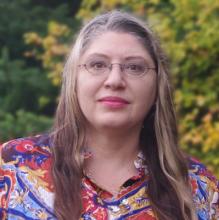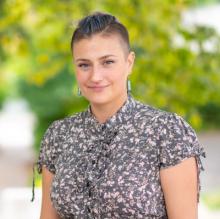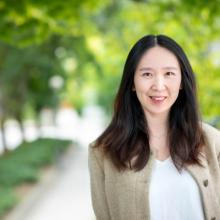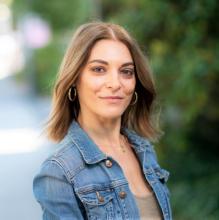In collaboration with the Rwanda Ministry of Health and Rwanda hepatitis association, my research project will be evaluating the mass screening and treatment program for hepatitis C virus (HCV) implemented in Rwanda. I will describe the cascade of care for HCV patients and identify factors that influence patients to drop-out of care before treatment completion.
Research Description
My research project will be evaluating the mass screening and treatment program for hepatitis C virus (HCV) implemented in Rwanda. I will describe the cascade of care for HCV patients and identify factors that influence patients to drop-out of care before treatment completion. In addition to the quantitative description of patients trajectory in therapy, I will also conduct in-depth interviews with patients and healthcare providers to gain an understanding of challenges encountered by patients that influence them to drop-out of care at different stages of the cascade. Lastly, to guide resource allocation for HCV treatment in Rwanda, I will determine HCV-related costs of chronically infected patients and assess whether mass screening and treatment strategy is more cost-effective compared to the strategy of routine testing at health facilities or targeted screening. The study will be conducted in collaboration with the Rwanda Ministry of Health and Rwanda hepatitis association.
What does being a Public Scholar mean to you?
Being a public scholar means to me having a unique opportunity to bridge the gap that still exists between academics, policymakers and community in general through knowledge translation. It is also a great platform that helps me to contribute to my community and lays the foundation for developing strong relationships with research partners that will be useful for my future career.
In what ways do you think the PhD experience can be re-imagined with the Public Scholars Initiative?
Using evidence to inform policy and practice is not a new idea, but despite the increasing body of literature and recommendations on this topic, the gap between research and practical decision making persists. This is particularly true in developing countries where resource limitations are likely to impact the ability of decision-makers to access and use evidence or conduct new research where required. PSI creates opportunities to Ph.D. students that allow them to do studies that are based on the community needs by involving stakeholders, community, and policymakers. Additionally, PSI has changed the traditional way of thinking about Ph.D. studies as being more theoretical and methodological and less of a platform to contribute to the community. PSI helps students to use methods and theories to transform people’s lives.
How do you envision connecting your PhD work with broader career possibilities?
I consider my Ph.D. project as a significant step on my career path. After completing my doctoral studies, I hope to work in a research-based setting leading program implementation and evaluations. I believe that my research project will not only equip me with research skills but also management skills that I will need after the Ph.D. program. I will even get the chance to connect with other stakeholders that I hope to work with, in the future. Having these connections and skills will be a great asset for me.
How does your research engage with the larger community and social partners?
Through my research project, I will work more closely with government officials who are in charge of the hepatitis program in Rwanda and Rwanda hepatitis association members. My research project will also involve patients, healthcare providers, and policymakers as research participants. Giving these research participants a voice will provide a more comprehensive view that would not be achieved otherwise.
Why did you decide to pursue a graduate degree?
My previous work experience led me to pursue a Ph.D. degree. I worked on impact evaluation project in Rwanda that aimed to support the ministry of health in making decisions that are evidence-based by using rigorous impact evaluations. I reached the point where I could not provide methodological input to the degree that I would have liked because of my limited skills in health policy evaluation methods. It is this gap in my knowledge that made me decide to pursue a Ph.D. degree. Pursuing a Ph.D. degree was more than just addressing the knowledge gap, I also I wanted to use this platform to continue improving access to care in low-income countries through research.
Why did you choose to come to British Columbia and study at UBC?
I chose to study at UBC for several reasons. First, UBC has a very strong international reputation, and I knew that I would learn a great deal from the available courses. Second, I have had the chance to work with my current supervisor Dr. Michael Law on several different research projects before coming to UBC, and his knowledge in using routine data for policy evaluation and his expertise in access to therapy research perfectly aligned with my goals.
Being a public scholar means having a unique opportunity to bridge the gap that still exists between academics, policymakers and community in general through knowledge translation.




